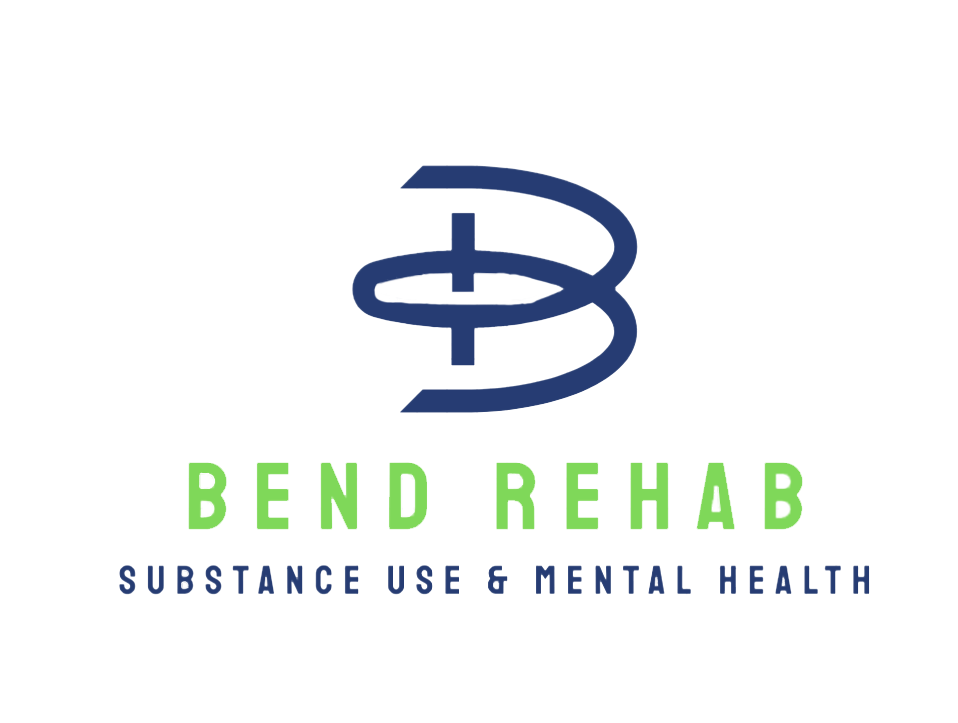Inpatient Alcohol Rehab in Bend OR
Alcohol addiction impacts millions of lives worldwide, disrupting families, careers, and personal well-being. In the United States alone, over 14 million adults struggle with alcohol use disorder (AUD), a condition that not only challenges the individuals dealing with it but also deeply affects their loved ones. The road to recovery can feel overwhelming and uncertain, but it’s important to remember that hope and help are available. One of the most effective ways to overcome alcohol addiction is by seeking support through inpatient alcohol rehab in Bend OR, a structured and immersive treatment option designed to provide the tools and environment needed for lasting recovery. Inpatient facilities are tailored to help individuals break free from the cycle of addiction while offering a safe space to heal physically, emotionally, and mentally. If you or someone you care about is exploring treatment options, you might be asking—what is life really like inside an inpatient alcohol rehab in Bend OR? What does the daily routine look like? How do therapy sessions work? In this blog, we take a closer look at a day in the life at an inpatient alcohol rehab center in Bend, Oregon.
Why Choose an Inpatient Alcohol Rehab in Bend OR?
Nestled in the heart of central Oregon, Bend is a city known for its captivating natural beauty and serene landscapes. For individuals seeking recovery, this tranquil environment offers more than just aesthetics—it becomes part of the healing process. Bend is home to several highly regarded inpatient alcohol rehab centers, providing comprehensive support for those struggling with alcohol addiction. These programs focus on structured care, offering a proven framework for recovery that typically spans 30 to 90 days, depending on individual needs. From wilderness therapy options to traditional evidence-based treatments, these centers in Bend provide a holistic approach to healing. For many, stepping into a safe and supportive inpatient environment allows them to separate from triggers, focus on their sobriety, and uncover a new way of life.
A Day in the Life at an Inpatient Alcohol Rehab in Bend OR
While each rehab center in Bend, OR, may tailor its programming to align with its unique therapeutic philosophy, most facilities follow a similar daily structure designed to guide individuals through their recovery journey. This structured approach typically includes a carefully planned mix of therapy sessions, such as individual counseling, group therapy, or family therapy, to address the underlying causes of addiction and develop coping strategies. Support group meetings, like 12-step programs or other peer-led discussions, offer a sense of connection and shared experience that can be incredibly motivating during recovery. Additionally, many centers incorporate recreational activities, such as yoga, hiking, art therapy, or fitness programs, to help individuals rediscover healthy ways to manage stress and improve overall well-being. Time for personal reflection, through journaling or mindfulness practices, encourages self-awareness and emotional growth. By providing a consistent routine that balances structure with personal growth, rehab centers create a supportive environment that fosters stability, accountability, and the practical tools needed to build a healthier, substance-free life.
7:00 AM – Wake Up and Morning Meditation
The day starts early to establish a sense of routine, which is an essential part of creating structure and stability for residents. Wake-up time is usually around 7:00 AM, allowing everyone to ease into the day with a sense of purpose. Morning meditation often follows, incorporating techniques such as mindfulness exercises, deep breathing, or prayer to create a reflective and calming environment. These practices encourage residents to focus on the present moment, setting a positive and peaceful tone for the rest of the day. These moments of calm not only help residents ground themselves but also play a crucial role in reducing anxiety, improving mental clarity, and fostering self-awareness—key components for personal growth and a successful recovery journey.
8:00 AM – Breakfast and Morning Check-In
After meditation, residents come together for a nutritious breakfast, a meal that offers more than just physical sustenance. It’s an important opportunity to connect not only with the treatment team but also with their peers in the program. During this time, residents can discuss their feelings, reflect on challenges they faced the previous day, celebrate small victories, or set focused, achievable intentions for their recovery goals. These morning discussions are more than just a routine—they play a pivotal role in fostering a sense of connection and belonging within the community. By openly sharing their struggles, successes, and hopes, residents build trust with one another, creating a network of accountability and support. This nurturing environment serves as a powerful reminder that they’re not alone in their journey, laying a strong foundation of care, empathy, and shared purpose as they continue their path toward recovery.
9:00 AM – Group Therapy Sessions
The core of an inpatient day revolves around group therapy, a cornerstone of the recovery process. Licensed therapists facilitate these sessions, leading discussions on essential topics such as relapse prevention, coping mechanisms, stress management, and interpersonal communication. These groups provide a safe and supportive environment where residents can openly share their experiences, challenges, and progress. By engaging in these discussions, individuals learn not only from the guidance of the therapist but also from the shared insights and stories of their peers. This collaborative approach fosters a sense of community and belonging, helping residents realize they are not alone in their struggles. This connection can be transformative, reducing feelings of guilt, shame, and isolation while building confidence and resilience. Over time, these sessions equip residents with practical and emotional tools needed to navigate life’s difficulties without relying on alcohol, laying the foundation for a healthier and more fulfilling future.
12:00 PM – Lunch and Recreation Time
Midday signals a much-needed break, providing residents with the perfect opportunity to pause and recharge. After enjoying a healthy, nourishing lunch often prepared with fresh, local ingredients, they can choose from a variety of activities designed to promote relaxation and wellness. Options may include serene nature walks through nearby trails, calming yoga sessions to stretch and center the body, expressive art therapy to spark creativity, or quiet moments spent journaling by the tranquil waters of a nearby lake. The breathtaking backdrop of Bend’s lush forests and majestic mountains amplifies the healing atmosphere, creating a sense of peace and grounding. These recreational breaks are thoughtfully integrated into the day, playing a vital role in fostering physical well-being, emotional restoration, and personal reflection, ensuring residents feel refreshed and reconnected.

1:30 PM – Individual Therapy Sessions
While group therapy focuses on building a sense of community and collective healing, individual therapy offers a private, personalized space for deeper self-exploration and growth. In one-on-one sessions, residents work closely with their assigned therapist to address a range of issues, including past trauma, underlying mental health challenges, and personal triggers that may impact their recovery journey. These sessions provide the opportunity for a deep dive into the individual’s thoughts, emotions, and behaviors, creating a safe environment to explore difficult topics without fear of judgment. This focused attention allows therapists to develop tailored strategies that align with the resident’s unique recovery goals and needs. For many, these conversations uncover the root causes of addiction, such as unresolved emotional pain or untreated mental health conditions, that may have been affecting their lives for years. With this understanding, residents can begin to build the tools and coping mechanisms needed for long-term healing and sustainable recovery.
3:00 PM – Educational Workshops
Recovery is more than just detoxing—it’s about building the skills and habits needed for a completely new way of life. Afternoon workshops provide residents with valuable tools and insights, focusing on essential topics such as nutrition, exercise, mindfulness, and relapse prevention strategies. Through these interactive sessions, participants gain a deeper understanding of how proper nutrition fuels recovery, how physical activity supports mental health, and how mindfulness can help manage stress and cravings. Residents are guided to cultivate a lifestyle that nourishes both their physical and emotional well-being, helping them develop healthier routines and coping mechanisms. These workshops are designed to empower individuals to redefine their daily habits, build resilience, and recognize the powerful connection between overall wellness and long-term sobriety. By addressing the mind-body connection, participants are better equipped to sustain their recovery journey and embrace a healthier, more fulfilling future.
5:30 PM – Dinner and Evening Reflection
Dinner is another opportunity for connection, where residents gather to share conversation and build a sense of community over a nourishing meal. Afterward, they take time to reflect on their accomplishments for the day through journaling or guided gratitude exercises. These practices encourage them to acknowledge their progress, both big and small, and to focus on the positive moments that might otherwise go unnoticed. Practicing mindfulness in the form of evening reflection not only reinforces positive habits but also helps residents process their experiences, develop self-awareness, and set thoughtful intentions for the day ahead. This routine fosters a sense of closure to the day, promoting clarity and emotional well-being.
8:00 PM – 12-Step Meetings or Alternative Recovery Programs
Evenings are often dedicated to 12-step meetings or alternative recovery approaches such as SMART Recovery and Refuge Recovery, each offering unique perspectives and valuable tools for personal growth. These programs provide a supportive environment where individuals can share their experiences, learn from others, and develop strategies to maintain sobriety. They complement the work done during the day by deepening the healing process and fostering a sense of belonging within a community. Beyond their immediate benefits, these meetings also prepare residents to stay connected to supportive networks after they leave rehab, helping them build a strong foundation for long-term recovery. By reinforcing accountability and introducing practical strategies, they equip residents to navigate real-world challenges with greater confidence and resilience.
10:00 PM – Lights Out
A structured bedtime ensures that residents prioritize rest and recharge their bodies and minds for the demanding work of recovery. Establishing a consistent sleep routine helps create a sense of stability and promotes overall well-being, which is essential during the healing process. By this time, individuals have engaged in daily activities designed to support their growth and feel both physically and emotionally prepared to approach the next day with clarity, focus, and renewed determination. This intentional approach to rest fosters resilience, helping residents stay committed to their recovery journey.
Why Structure Matters in Recovery
The routine of inpatient rehab is carefully designed to balance intensive therapy with moments of relaxation, reflection, and personal growth. Days are structured to include therapy sessions, physical activities, and time for self-discovery, creating a supportive environment where individuals can focus entirely on their recovery. This structure provides a framework to break unhealthy patterns, replace them with healthier habits, and build the skills needed for lasting change. Additionally, consistent daily routines help reestablish discipline and accountability, which are vital cornerstones of long-term sobriety. For those struggling with alcohol addiction, this consistency becomes a comforting anchor, offering stability and hope in what may have been years of chaos and unpredictability. The predictable routine fosters a sense of safety and control, two essential elements for healing and rebuilding a fulfilling life.
Conclusion
Recovery is not just about breaking free from alcohol dependence—it’s about rediscovering hope, rebuilding self-worth, and embracing the possibility of a fulfilling, meaningful life. An inpatient alcohol rehab in Bend OR, provides a supportive, structured environment designed to help individuals take that life-changing first step toward transformation. These centers offer personalized treatment plans, skilled professionals, and a safe space to focus entirely on healing, away from life’s usual distractions and triggers. Whether for yourself or a loved one, we are here to help so reach out to us today by calling 1 (541) 802-7214 or click Bend Rehab. Bend’s inpatient rehab centers go beyond addressing addiction; they foster community, teach essential tools for long-term sobriety, and instill the confidence needed to face life’s challenges with clarity and strength. From individual counseling and group therapy to strategies for relapse prevention, these programs are tailored to provide comprehensive care. Learn more about the resources available in Bend, or reach out to one of its treatment centers today to explore your options. Recovery isn’t just possible—it’s achievable, and you don’t have to go through it alone. Help and healing are just a call away.




